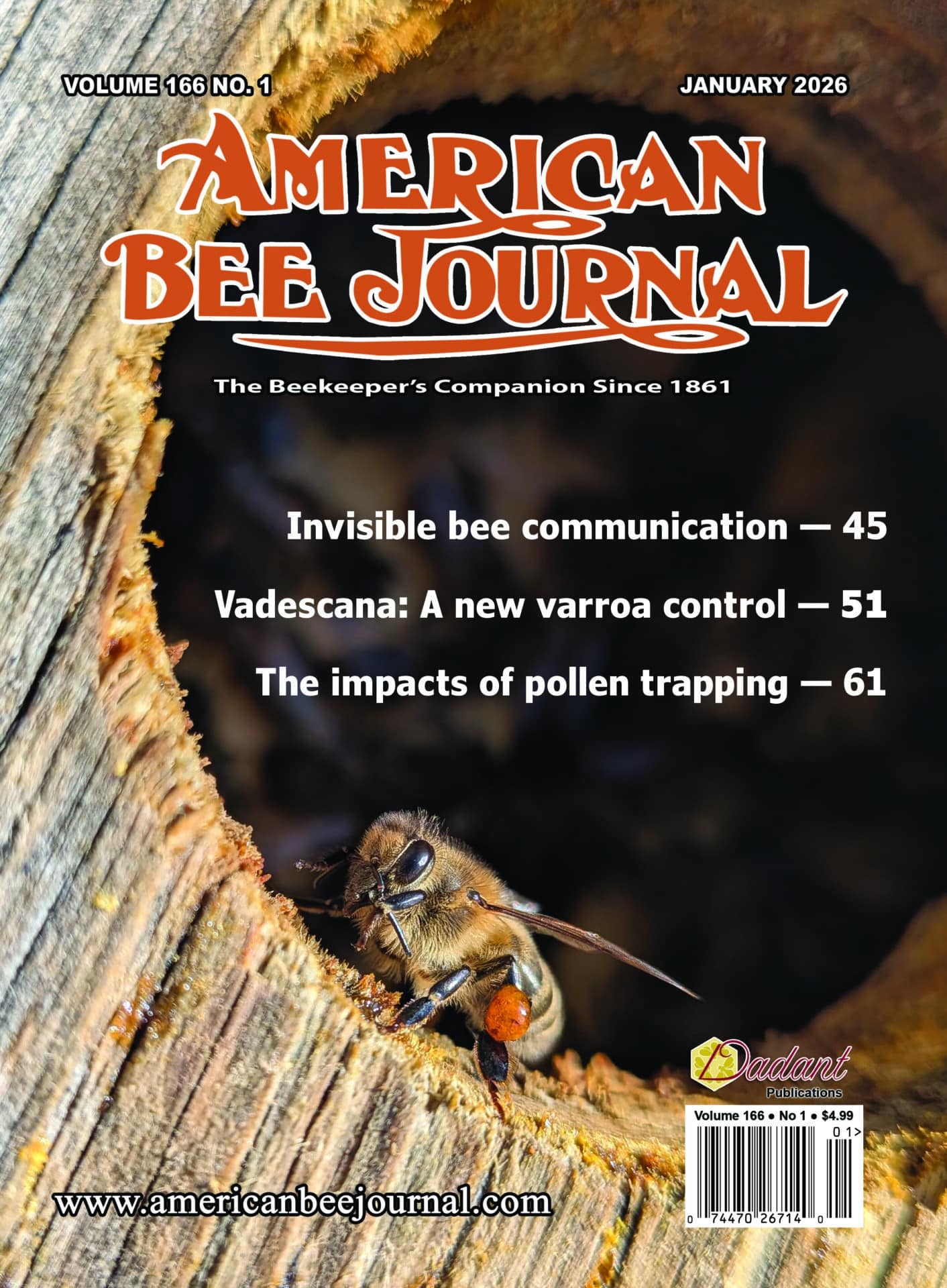Dr. Kim Skyrm
Dr. Kim Skyrm is the State Apiarist/Chief Apiary Inspector at the Massachusetts Department of Agricultural Resources (MDAR). Kim is a scientist by training and a hobby beekeeper driven by an intense love of bees combined with dedication to using the latest science to inform and provide support for both wild and managed bee populations. Dr. Skyrm has been educating and leading research and extension-type projects directly benefitting beekeepers, farmers, gardeners, regulatory agencies, academics, and the general public for the past 12 years. Kim is truly passionate about apiculture and ensuring the viability and sustainability of bee populations!
The Buzz about Bumble Bees
This presentation will discuss the unique biology and life history of bumble bees, Bombus spp., with a focus on common Northeastern species. Participants will be encouraged to “think like a bee” and see landscapes through the eyes of “bee-holders” to increase local stewardship efforts. Using a beekeeper management mindset, an overview of the techniques used to capture, rear and provide husbandry to common bumble bee species will be discussed. Bee warned that this presentation my spark an even greater appreciation for and expand your interest in bumble bees!
Fight Back: Varroa Mite IPM is the Bees Knees!
This presentation will discuss the life history, monitoring, and management techniques involved with the most detrimental parasite affecting honey bees, Varroa destructor. Participants will be led through a real-life case study to allow for a better understanding of how to determine the signs of high Varroa mite levels, methods to monitor populations, and how to select the best available treatment options. We will also discuss action steps to promote and ensure mite treatment efficacy with a focus on Northeast management.
Dr. David Tarpy
David Tarpy is a Professor of Entomology and the Extension Apiculturist at North Carolina State University since 2003. As Extension Apiculturist, he maintains an apiculture web site dedicated to the dissemination of information and understanding of honey bees and their management, spearheads numerous extension projects (such as the 2005 New Beekeeper Cost-sharing program that created hundreds of new beekeepers within the state) and launched the Beekeeper Education & Engagement System (BEES)—an exciting online learning resource for knowledge and understanding of bees and beekeeping. His research interests focus on the biology and behavior of honey bee queens in order to better improve the overall health of queens and their colonies. Specific research projects include understanding the effect of multiple mating on colony disease resistance, using molecular methods to determine the genetic structure within honey bee colonies, and the determining the regulation of reproduction at the individual and colony levels. His work has provided some of the best empirical evidence that multiple mating by queens confers multiple and significant benefits to colonies through increased genetic diversity of their nestmates, particularly through increased tolerance to numerous diseases. More recently, his lab group has focused on the reproductive potential of commercially produced queens, testing their genetic diversity and mating success in an effort to improve queen quality.
The quality of commercial queens
This is often the second of a one-two punch with the above, where our interest in multiple mating by queens asks the logical question about how good commercial queens are. Diminished queen quality and reduced longevity is a major problem experienced by beekeepers, and so this presentation explores the good news and the bad news when it comes to buying queens in the apiculture industry.
“Diagnosing queen problems: is it the queen, the colony, both, or neither?!”
Practical advice looking at different symptoms and attributing whether or not the problem is the queen’s fault. A lesson in showing how we blame the queen way more often than it’s actually her fault.
Dr. Larry Connor
Lawrence Connor was born in Kalamazoo Michigan and earned his doctorate in honey-bee pollination of crops at Michigan State University. He has worked as Extension Bee Specialist at The Ohio State University, President of Genetic Systems, Inc. (which produced tens of thousands of instrumentally inseminated queens honey bees as well as the Starline and Midnite breeding stock), and now owns and operates Wicwas Press, specializing in publication of quality bee books. He relocated (from Connecticut) back to Michigan in April 2007 to continue growth of his publishing and writing activities. He has edited and published over two dozen books and recently written: Increase Essentials(2006), Bee Sex Essentials (2008), Queen Rearing Essentials, Bee-sentials: A Field Guide, Swarm Essentials (with Steve Repasky), Honey Bee Biology and Beekeeping (with Dewey Caron), Increase Essentials Second Edition and Mating Biology of honey bees (with G. and N. Koeniger and J. Ellis). In 2018 he helped his son Andrew Connor write BeeCabulary Essentials. He recently completed Keeping Bees Alive.
Connor was a frequent contributor to The American Bee Journal and to Bee Culture Magazine. He travels extensively and lectures on a wide range of subjects concerning honey bees, bee breeding, pollination and colony management. For further information consult the website: www.wicwas.com.
History of Queen Rearing and Instrumental Insemination
This presentation will discuss the development of modern queen rearing methods in the United States. The efforts to control honey bee mating have been investigated for hundreds of years. Included will be work by Watson, Laidlaw and Harbo. A few new devices will be discussed.
Evaluating the Sustainability of Biodynamic Beekeeping
This presentation examines the principles of biodynamic beekeeping as being promoted on the internet and at meetings. The presenter will evaluate nine points of the teaching from a scientific and beekeeping perspective. These concepts will be examined for their merits to obtaining sustainable beekeeping practices.


